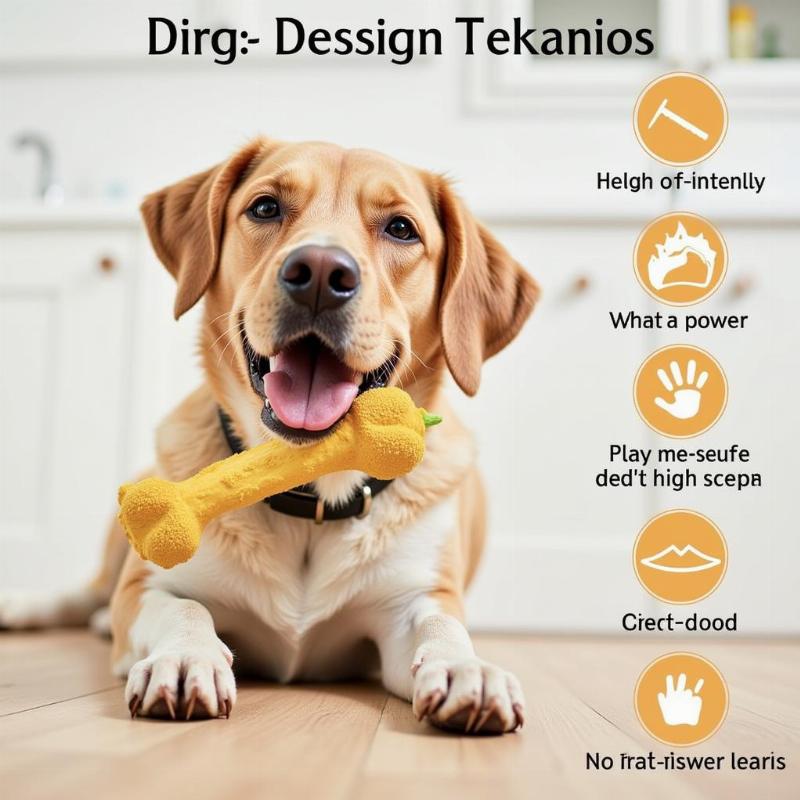Recognizing the subtle signs of discomfort in our furry friends is crucial for their well-being. If you’re asking yourself, “How do you know if your dog has a toothache?”, you’re in the right place. Dogs often hide their pain, making it essential for us to be vigilant and understand the common indicators of dental distress. This article will equip you with the knowledge to identify potential toothaches in your dog and guide you toward appropriate veterinary care.
Dental health plays a vital role in a dog’s overall health. Just like humans, dogs can experience toothaches, which can significantly impact their quality of life. However, since dogs can’t verbally express their pain, it’s up to us as responsible pet owners to recognize the signs. Understanding how to identify a potential toothache in your dog is the first step towards providing them with the necessary care and relief. Left untreated, dental problems can lead to serious health issues, including infections that can spread to other parts of the body. Therefore, learning how to recognize if your dog has a toothache is not just about their oral hygiene, it’s about their overall well-being.
Common Signs Your Dog May Have a Toothache
Several subtle but telling signs can indicate a dog is experiencing dental pain. Watch for changes in behavior, such as decreased appetite, especially if your dog is suddenly hesitant to eat hard food. Drooling more than usual, pawing at the mouth, or rubbing their face against furniture can also be indicative of oral discomfort.
Changes in chewing habits, like dropping food or chewing on one side of the mouth, are other potential signs. Bad breath, although common in dogs, can become particularly pungent with a dental infection. Finally, swollen gums, visible tartar buildup, or broken teeth are clear indicators of potential dental issues.
What to Do if You Suspect Your Dog Has a Toothache
If you notice any of these signs, it’s crucial to schedule a veterinary appointment as soon as possible. Do not attempt to treat your dog’s toothache at home with human remedies, as these can be harmful or even toxic to dogs. how to tell if dogs teeth hurt Your veterinarian can accurately diagnose the problem and recommend the appropriate course of action, which may include professional cleaning, tooth extraction, or other necessary treatments.
“Regular dental checkups are as important for dogs as they are for humans,” says Dr. Emily Carter, DVM, a leading veterinary dentist in New York. “Early detection and intervention can prevent minor dental problems from escalating into serious and painful conditions.” Remember, preventative care is key to maintaining your dog’s oral health and overall well-being. Regular brushing, dental chews, and professional cleanings can help prevent dental disease and toothaches.
Preventing Dental Issues in Dogs
Just as with humans, regular dental hygiene is crucial for preventing toothaches in dogs. how to tell if a dog has a toothache Brushing your dog’s teeth daily with a dog-specific toothpaste is the best way to remove plaque and tartar buildup. Dental chews and toys can also help keep their teeth clean and healthy. Providing a balanced diet and avoiding sugary treats can also contribute to good oral hygiene.
 Dog Chewing a Dental Toy
Dog Chewing a Dental Toy
“Providing your dog with appropriate chew toys can significantly reduce their risk of developing dental problems,” advises Dr. Michael Davis, DVM, a renowned veterinarian specializing in canine health. “Chewing helps to naturally clean their teeth and strengthen their jaws.”
Conclusion
Being able to recognize the signs of a toothache in your dog is an essential part of responsible pet ownership. By being observant and proactive, you can help ensure your furry companion enjoys a happy, healthy life free from dental pain. Remember to schedule regular veterinary checkups and maintain a consistent dental hygiene routine at home to prevent future problems. senior dog suddenly not eating Addressing dental issues promptly can significantly improve your dog’s comfort and overall health. Don’t hesitate to contact your veterinarian if you suspect your dog is experiencing a toothache.
FAQ
- How can I tell if my dog has a broken tooth? You might notice your dog avoiding hard food, drooling excessively, or pawing at their mouth. A visual inspection might reveal the broken tooth.
- Can I give my dog human pain medication for a toothache? Never give your dog human medication without consulting a veterinarian. Many human medications are toxic to dogs.
- How often should I brush my dog’s teeth? Ideally, you should brush your dog’s teeth daily. dog food and bad breath
- What are the best dental chews for dogs? Consult your veterinarian for recommendations tailored to your dog’s breed, age, and size.
- Are there any home remedies for dog toothaches? While some natural remedies might offer temporary relief, it’s crucial to consult a veterinarian for proper diagnosis and treatment. do dogs have tooth pain
- Can a toothache cause my dog to lose weight? Yes, if the pain makes it difficult for your dog to eat, they might lose weight.
- Is bad breath always a sign of a toothache? While bad breath can indicate a toothache, it can also be caused by other factors, such as dietary issues or other health problems.
Beautdogs.us is your premier resource for all things dog-related in the US. We offer expert advice on dog breeds, care, and products, catering to both new and experienced dog owners. Our mission is to provide reliable and engaging information to help you navigate the joys and challenges of dog ownership. From understanding breed specifics to finding the best products and services, Beautdogs.us is your trusted companion on this journey. For any inquiries or further assistance, please reach out to us at [email protected] or call us at +1 501-555-7529. Beautdogs.us is here to help you and your furry friend live a beautiful life together.